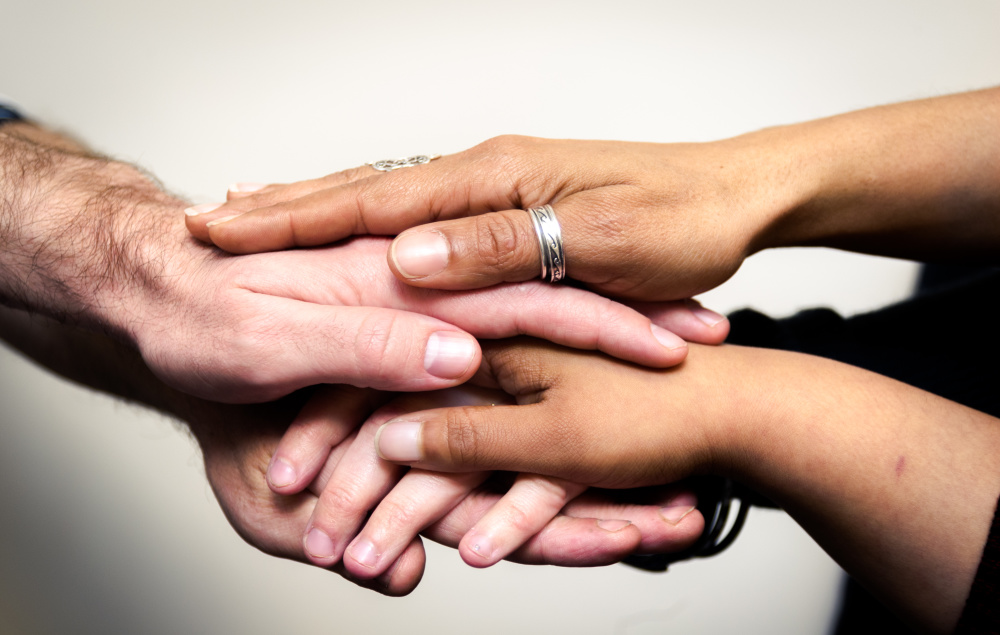Gaining the wisdom of another’s experience can be invaluable when facing something new – including cancer. Through the SoulMates program at Dana-Farber’s Susan F. Smith Center for Women’s Cancers, newly diagnosed breast cancer patients can be paired with trained volunteers who have already been through surgery, chemotherapy, radiation or other kinds of treatment.
“Our volunteers serve as peer mentors, helping new patents deal with everything from how a cancer diagnosis changes one’s sense of self to the many different ways it can impact relationships,” says Nancy Poorvu, PhD, LICSW, the founder and director of SoulMates, who was also treated for breast cancer. “In most cases, the tips are transferable to all cancers.”
Here are some of the questions peer mentors often encounter, along with some of their best answers:
What should someone most keep in mind when starting treatment?
- You get to call the shots. You don’t have to do anything you don’t want to do. Don’t feel guilty or obligated.
- Don’t isolate yourself. There are so many ways I closed myself off to others, and wish I had not. Even if you are hurting, you need to let helpers in.
- Build a support system of family and friends. Everything should not fall on one individual, so let different people take on specific duties such as arranging for visits, carpools, or home-cooked meals.
- Find a cancer buddy. It really helps to have someone who has had cancer, and preferably your type of cancer, with whom to share challenges and adventures. Someone who has been through a similar experience has a better understanding.
- Take advantage of offerings beyond your standard treatment. The Zakim Center at Dana-Farber has many integrative programs, from acupuncture to yoga to Reiki treatment. There is also an exercise program here for active cancer patients and those out of treatment.
Looking back, what do you wish someone had told you when you started treatment?
- If you are having a treatment that involves hair loss, shave your head earlier. I had very thick, long hair, which fell out in clumps during treatment and tangled with the remaining hair. My hairdresser had to work at getting huge knots out, and it was very painful. When I finally asked her to take it all down to a buzz cut, it was a relief.
- Even those who love you can say – and do – really insensitive things. People are often very uncomfortable encountering a cancer patient, and everyone from acquaintances to best friends and family can unintentionally say hurtful or off-putting things. Don’t let it get to you, and try sharing any frustrations with your cancer buddy (see above).
- Take pictures. Once you are the road to recovery and the storm has passed, photos will show how much you went through – and that you are here to tell your story.
- Start an online journal. This is a great way to let your support team of family and friends know what’s going on in your treatment without your needing to explain things over and over. It’s also healthy to express your feelings rather than keep them bottled up.
- Get a pair of big boxing gloves. Bring them to whatever treatments you need to, as a reminder of the boxing ring your cancer treatment has put you in. You have many, many hits to take to win the rounds, and at times it is mind over matter. These gloves will empower you.
What’s the best advice you received when you started treatment?
- Choose the best doctor for your cancer – and the best fit for you. When it comes to cancer, you may end up working with your doctor(s) for months or even years to come. Find the one who is an expert in your cancer and also best suits your personality. It’s important that you feel confident and at ease with your plan.
- Join a cancer support group. No matter how much help you receive, you might feel alone until you sit down with those who have been in your shoes. It’s an invaluable feeling to have at the start of treatment.
- Keep your head high. Fake it until you make it, and you will make it.
Editor’s Note: Judie and Larry Schlager have made several generous gifts to help establish and grow SoulMates, the program detailed above which matches breast cancer patients with volunteer mentors who have had a similar diagnosis at Dana-Farber.


In addition to SoulMates, Dana-Farber’s One-to-One program will math newly diagnosed patients with trained volunteers who have the same diagnosis and/or have been through a similar treatment regimen. One-to-One can provide matches for all types of cancer. For more information, go to http://www.dana-farber.org/Adult-Care/Treatment-and-Support/Patient-and-Family-Support/One-to-One.aspx
This article should be reworded. There are valuable tips here, but “survivor” references can be offputting to those who have been diagnosed with stage IV.
Great article for information!